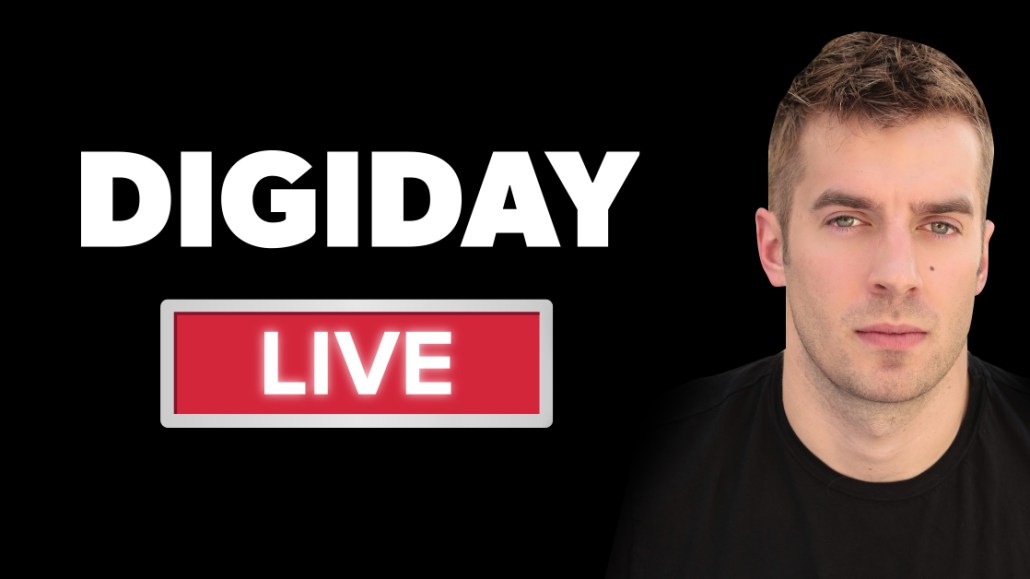Secure your place at the Digiday Media Buying Summit in Nashville, March 2-4

Subscribe: iTunes | Stitcher | RSS
Brands are quickly recognizing Amazon as a threat, and the luxury business is no different. Charlie Cole, the chief digital officer of luggage retailer Tumi, believes in taking every step with caution when it comes to Amazon.
Cole said that by working with Amazon, he risks lowering Tumi’s luxury status in exchange for exposure. “That sucks,” he said. “But when you force that amount of eyeballs at one place, as a brand, can you not be there?”
At the Digiday Brand Summit in Charleston, South Carolina, he talked with Digiday brands reporter Yuyu Chen about the future of modern branding and Amazon’s threat to marketers.
Edited highlights below:
Everything can’t be automated.
“Brand lens is a very qualitative thing. This idea of a brand lens when you’re a digital marketer can sometimes be forgotten about between all the other algorithms and other aspects of programmatic. You still need to know where your impressions are setting up. We do it in-house because, frankly, I don’t trust any agency to know our brand as well as we do. We all ran into problems during the election. A lot of places that used to be safe and non-polarizing became really polarizing in a hurry. This is a classic example of where AI will never fully take over.”
Tumi’s approach to analytics maintains brand integrity.
“We do actively use a third-party system to mitigate ad fraud. It’s pretty powerful. It becomes hugely more important for a top-of-the-funnel focus company like a P&G company, auto, etcetera. Tumi, and our parent company Samsonite, is probably a much smaller spend than some of the CPG firms here. The more you spend, the more important it is. We use external tools, but we do the data consolidation and analysis internally. An algorithm does not know what your creative director thinks is brand appropriate. You have to have a remarkably high hurdle to get over in order to justify buying on places in a purely programmatic place because it implies quick computer-based decisions. We keep our analytics in house to stay very close to the numbers.”
Amazon creates branding concerns.
“It is the ultimate walled garden. Facebook and Google have controlled the conversation up to the point of purchase; Amazon has verticalized it. So now they try to control that conversation all the way through that funnel. It’s especially horrifying for a premium brand. I don’t think premium and luxury would be associated with Amazon, and those things can take a hit on your brand. Branding is a very artistic thing as opposed to analytical. When you think about Tumi, I don’t want to be with Amazon marketing arm-in-arm. I want to be with Harper’s Bazaar, Saks, Barneys — places that have a reputation for premium. That’s all very superficial, but as branders we have to think about it.”
Luxury retail is not in Amazon’s DNA
.
“The way they treat us tells me they don’t understand luxury. If Tumi isn’t on Amazon, my job becomes: Make it the worst possible experience for someone on Amazon when they type in Tumi, so then they go to Google. I don’t think you can wedge culture into your company that isn’t inherent. They might do it through acquisition. I’m very hesitant to get further involved with them unless they show a semblance of respect for our brand.”
Opening up to Amazon calls for a strong game of balance.
“Amazon’s marketing services are pretty good. I would equate it to page search in 2006. From an organic search perspective, Tumi gets no benefit. If you type in a bag or something, you see a bunch of products for $100 or below. I don’t hold it against them. But what that means is that we have to leverage their marketing services to get that intrinsic benefit. There is an argument to being on Amazon for the sole purposes of leveraging their marketing sources, but it comes with the risk that you are making your brand open to the wild, wild west of their marketplace. And you can’t have one without managing the other.”
More in Marketing

Thrive Market’s Amina Pasha believes brands that focus on trust will win in an AI-first world
Amina Pasha, CMO at Thrive Market, believes building trust can help brands differentiate themselves.

Despite flight to fame, celeb talent isn’t as sure a bet as CMOs think
Brands are leaning more heavily on celebrity talent in advertising. Marketers see guaranteed wins in working with big names, but there are hidden risks.

With AI backlash building, marketers reconsider their approach
With AI hype giving way to skepticism, advertisers are reassessing how the technology fits into their workflows and brand positioning.





